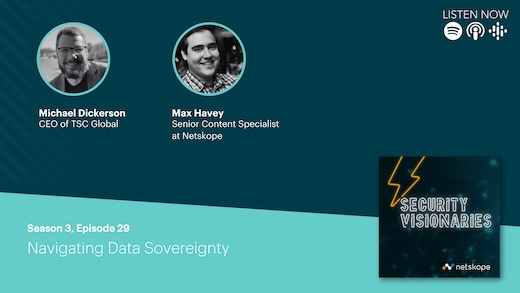Our most recent Cloud and Threat Report highlighted how threat actors abuse cloud services (with a special focus on cloud storage apps) to deliver malicious content (and yes, OneDrive leads the chart of the most exploited apps).
To confirm that this trend will likely continue in 2023, researchers at Trend Micro have discovered an active campaign, launched by a threat actor named Earth Bogle. They are using Middle Eastern geopolitical themes as a lure to target potential victims in the Middle East and Africa, and exploiting multiple public cloud storage services in a two-staged campaign aimed to distribute the remote access tool NjRAT (AKA Bladabindi).
During 2022, we have discovered 401 different apps exploited to deliver malware, and even this fragmentation trend will likely continue in 2023, given that for this specific campaign the threat actors have weaponized multiple cloud services. This not only includes the usual suspects, such as OneDrive and Discord exploited, and legitimate compromised websites, to distribute the stage two dropper, but also a couple of less known cloud storage services, files.fm and failiem.lv, used to deliver the stage one payload hidden inside a Microsoft Cabinet (CAB) archive file masquerading as a “sensitive” audio file (once again the attackers prey on the curiosity of their victims).
An additional interesting aspect of this campaign is that the links to the malicious cloud storage apps have been advertised through fake social media accounts claiming to belong to reputable organizations. This is an additional indirect contribution of weaponized cloud services for this campaign, as we have also demonstrated in our Cloud and Threat report, where social media were among the top referrers for distributing malicious links.
As the Trend MIcro researchers point out, this case demonstrates that threat actors will leverage public cloud storage as malware file servers, combined with social engineering techniques appealing to people’s sentiments such as regional geopolitical themes as lures, to infect targeted populations.
How Netskope mitigates the risk of legitimate cloud services exploited to deliver malware
For all the cloud services involved in this campaign, the Netskope Next Gen SWG provides granular access control. It is possible to govern up to 35 activities for the “Cloud Storage” category, where OneDrive, files.fm, and failiem.lv belong, and up to seven activities for the “Chat, IM, & other communication” where Discord belongs. Moreover OneDrive is one of the dozens of apps for which instance detection is also available. To defend against attacks where a legitimate cloud service is exploited to distribute malware, it is possible to configure a policy that prevents potentially dangerous activities (such as download) from non-corporate instances, or in general from any unneeded cloud storage or instant messaging service for the enterprise.
Netskope customers are also protected against malware distributed from a legitimate cloud service by Netskope Threat Protection. Netskope Threat Protection scans web and cloud traffic to detect known and unknown threats with a comprehensive set of engines including signature-based AV, machine learning-based detectors for executables and Office documents, and sandboxing. Part of the advanced capabilities of Netskope Threat Protection is also the Patient Zero protection, which prevents the delivery of unknown or zero-day threats (at the time of discovery the malicious payloads of this campaign had a very low detection rate) until a verdict by the advanced engines is available. And obviously Netskope threat intelligence blocks the access to malicious sites, wherever they are hosted, whether it is a malicious domain or a weaponized cloud app, and regardless of the origin of the link, such as a social media account.
Netskope Cloud Exchange, included in any license, is a precious ally of Netskope customers, providing a powerful tool to leverage the existing security investments through the integration between the Netskope platform and third-party technologies such as threat intelligence feeds, endpoint detection solutions,, trouble ticketing system, and SIEM/SOAR platforms.
Finally, Netskope Advanced Analytics provides specific dashboards to assess the risk of rogue cloud instances being exploited to deliver malware or becoming the target of anomalous communications, with rich details and insights, supporting security teams in the analysis and mitigation/remediation process.
You can subscribe to the Cloud Threats Memo mailing list at this link.




 Voltar
Voltar 





















 Leia o Blog
Leia o Blog